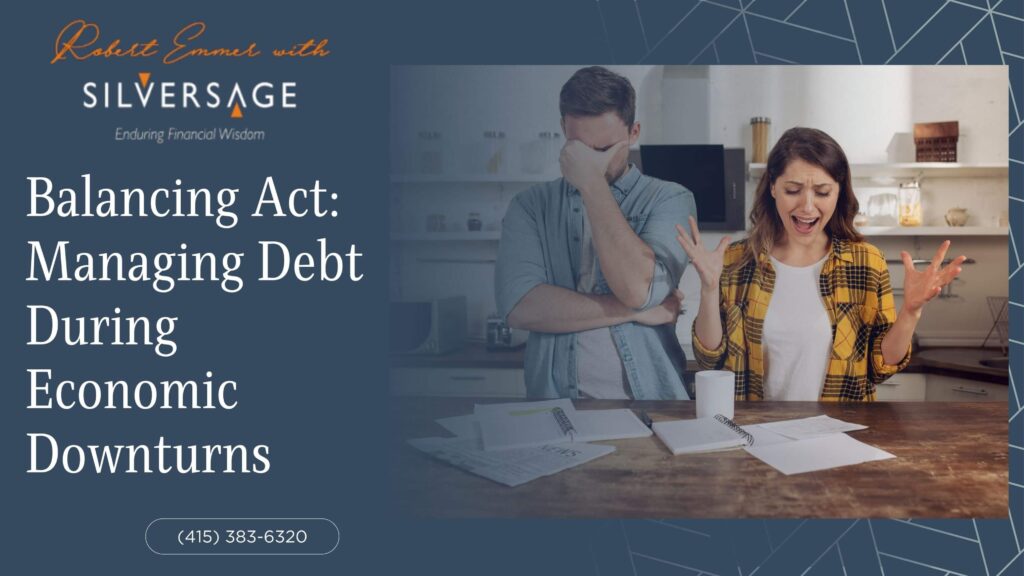We’ve all experienced the financial ups and downs that life throws at us. But when the economy takes a hit, handling your debt can feel like trying to walk a tightrope without a safety net.
Don’t worry; we’ve got your back!
In this article, we’ll guide you through the art of balancing your finances with simple and practical advice.
1. Understanding Debt
Let’s start with the basics. Debt – it’s a word that might sound scary, but it’s just money you owe to someone else. Whether it’s your credit card bill, student loans, your mortgage, or even a personal loan, debt is something many of us deal with.
Debt is a bit like a double-edged sword. It can help you reach your goals, like buying a home or starting a business, but if you’re not careful, it can also bring financial stress and trouble your way.
2. The Impact of Economic Downturns
When the economy takes a hit, like during a recession or a pandemic, it can shake up your financial world. Jobs become scarce, your investments might lose value, and everything can feel uncertain. And guess what? Your debt can become an even bigger headache during these times.
Economic downturns can increase the risk of job loss, which makes it harder to pay off your debt. Plus, the interest rates on your debts might go up, making them even more expensive.
3. Strategies for Managing Debt
Now, let’s talk about how you can keep your debt under control during tough times.
3.1. Create a Budget
Start by figuring out how much money you make and how much you spend. Making a budget can help you see where you can cut back on expenses, giving you more money to pay off your debts.
3.2. Prioritize High-Interest Debt
Focus on paying off high-interest debt first, such as credit card balances. The interest on these debts can accumulate quickly, making them more challenging to tackle.
You can also use the snowball method – as you pay off one debt, put that money towards the next one on your list, speeding up your debt payoff.
3.3. Emergency Fund
Having some money saved up for unexpected expenses can stop you from piling on more debt when things get tough. A good rule of thumb is to have enough to cover three to six months’ worth of living expenses.
3.4. Negotiate with Creditors
Don’t be afraid to reach out to your creditors if you’re struggling to make payments. Many are willing to work out a modified payment plan.
Being upfront with your creditors can lead to more manageable repayment terms.
3.5. Avoid New Debt
During an economic downturn, resist the temptation to take on new debt unless it’s absolutely necessary. Focus on managing your existing obligations.
Avoiding new debt helps you maintain control over your financial situation.
4. Seek Help from a Financial Advisor
Remember, you don’t have to go it alone. Seeking guidance from a financial advisor can make a huge difference. These professionals can give you personalized advice that fits your unique situation.
A financial advisor can help you create a long-term financial plan, manage your debt, and make smart choices when it comes to your money.
5. Conclusion
In the world of personal finance, mastering the art of managing debt during economic downturns is a crucial skill. By understanding the nature of debt, its impact during tough times, and adopting effective strategies, you can maintain financial stability even when the world seems uncertain.
Don’t forget, there’s no shame in asking for help from a financial advisor, and you’re not the only one going through this. With determination and the right knowledge, you can weather any financial storm.
Get in touch
Whether you’re looking to plan for retirement, grow your wealth, or safeguard your assets, I’m here to guide you every step of the way. You can trust me to provide you with the highest level of professionalism and expertise.
Let’s embark on this journey together towards your financial success.
Get in touch with me today to explore how I can assist you in achieving your financial aspirations.
Frequently Asked Questions (FAQs)
What should I do if I can’t pay my debts during an economic downturn?
Reach out to your creditors and discuss your situation. They may offer modified payment plans or temporary relief options.
Should I use my emergency fund to pay off debt?
It’s generally advisable to keep your emergency fund intact. Use it only for genuine emergencies, as it can prevent you from taking on more debt.
How can a financial advisor help me with debt management?
A financial advisor can assess your financial situation, create a debt repayment plan, and provide strategies for managing your finances effectively.
Is it a good idea to consolidate my debts during an economic downturn?
Debt consolidation can be helpful if it lowers your interest rates and simplifies payments. However, it’s crucial to weigh the pros and cons before proceeding.
Can I still save for the future while managing debt during an economic downturn?
Yes, it’s important to continue saving for your future, even during tough times. A financial advisor can help you strike the right balance between debt management and saving for your goals.

